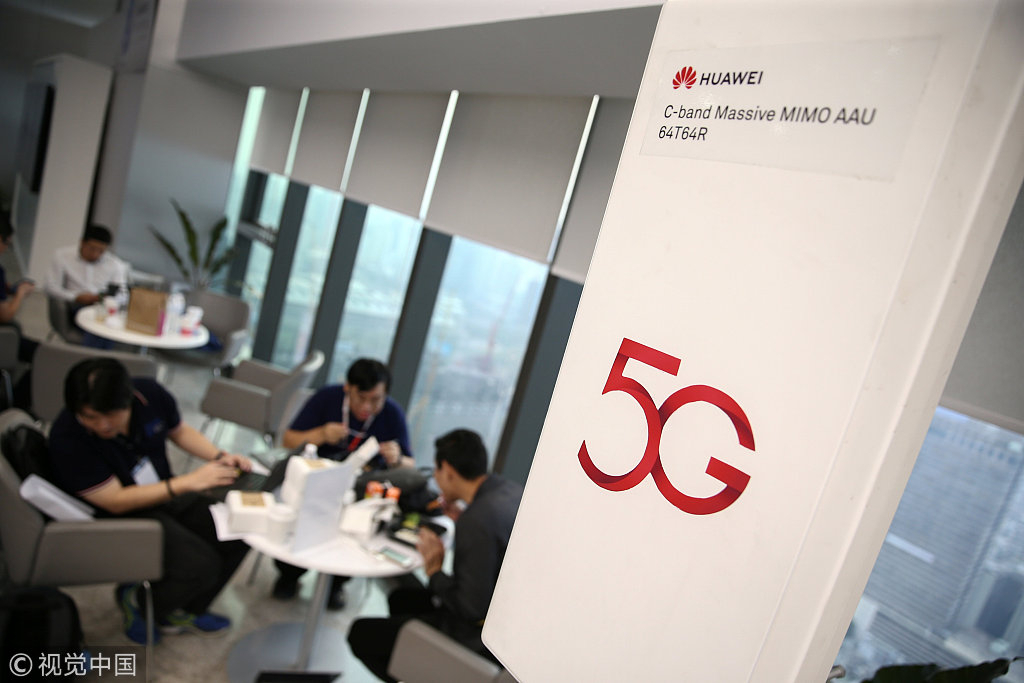
Opinion
12:30, 20-May-2019
World needs to become less reliant on Silicon Valley
Tom Fowdy

Editor's Note: Tom Fowdy, who graduated from Oxford University's China Studies Program and majored in politics at Durham University, writes about international relations focusing on China and the Democratic People's Republic of Korea. The article reflects the author's views, and not necessarily those of CGTN.
The world was shocked on Monday by the announcement that in the midst of U.S. President Donald Trump's decision to blacklist Huawei as an "entity" via the U.S Department of Commerce, Google Inc. announced that it would be severing business with the Shenzhen-based firm.
As per the company's statement, Huawei will have no longer have access to Google-licensed products and applications in future versions of its smartphone devices, effectively closing the door on it to the Android operating system.
The news is not great for the company given its immense popularity in Western countries and growing share of the phone market. Western users will now not be able to use popular applications such as Google Mail, YouTube and chrome on future versions of Huawei handsets.
The move signals a wider political and economic problem: the core of the world's technology companies are overwhelmingly concentrated within a small region of the Western United States, commonly referred to as Silicon Valley.
This location is, of course, immensely favorable for the industries themselves and deserves great praise for what it has achieved, but today's news reveals a longstanding strategic weakness. That is, globally used firms and companies are, in fact, at the mercy of the American government.

A Huawei 5G device on display at an exhibition in Bangkok, Thailand, January 30, 2019. /VCG Photo
A Huawei 5G device on display at an exhibition in Bangkok, Thailand, January 30, 2019. /VCG Photo
With the Trump administration abusing unilateral measures on a scale unprecedented in history, the White House is effectively dictating to the entire world with whom it can and cannot do business.
This is a massive infringement on the decisions of companies, consumers and nations throughout the world without even legitimate grounds to do so. The only answer is that global technology markets become less dependent upon America.
They must invest in safe and stable third countries which do not utilize commerce as a political weapon and strive to ruin global brands resentfully at the stroke of a pen.
What we term Silicon Valley is a lush corridor of northern California which has become the effective center of almost everything important to our lives today. Home to an array of the world's most influential and prestigious technology firms, the nickname itself is a testament to the iconography of the area's power and innovation.
You use an Apple smartphone? Silicon Valley. You search on Google? Silicon Valley. You download a PDF with Adobe? Silicon Valley. You browse Twitter, Instagram and Facebook? Silicon Valley.
In every sense, it is a region which has decisively shaped and built the modern world as we know it to be. There are few if any other specific areas around the globe which has had such a profound and personal influence on how we live.

The Huawei Technologies Co. "Balong 5000" chip for 5G devices is unveiled during an event in Beijing, January 24, 2019. /VCG Photo
The Huawei Technologies Co. "Balong 5000" chip for 5G devices is unveiled during an event in Beijing, January 24, 2019. /VCG Photo
But with it all, comes great risks. With so much power and technology vested within one location, Silicon Valley Companies are, by legal force, ultimately answerable to the jurisdiction to which they fall under, the United States.
Why is it a problem? Because as of the present administration, there is no country which sets out so aggressively by the will of executive power. In the midst of the Trump administration's blacklisting of Huawei, Google Inc. has quickly cut off doing business with the company and revoked its licensing agreement.
Why is it a problem? Because Google and Huawei's roles go far beyond the U.S. itself – both of them are globally utilized and revered brands. As Google is forced to cut off Huawei by legal obligation in America, it immediately reaches beyond the borders and directly impacts millions and millions of consumers around the world who not only want to use Huawei devices, but also want to benefit from the Google software.
Essentially, this is the White House forcing a political decision upon the entire world whether they like it or not. There is no justice or rationale in doing something like that.
Given this, the world needs desperately to move beyond total dependence upon Silicon Valley, including the companies of the region.
There should be no resentment to what these companies offer or achieve, but the United States as of present are demonstrating that they are not a reliable country to do business in when you are a firm looking toward securing a global market.
Washington's foreign policy as it stands does not respect the interests of global business. The industrial scale abuse of unilateral sanctions, tariffs and blacklisting paints a sour prospect for firms looking to invest outside the Western world.
Thus, it is time to start imagining a post-Silicon Valley world where no country holds hegemony over technology. Governments must start investing heavily in their own pathways and alternatives.
(If you want to contribute and have specific expertise, please contact us at opinions@cgtn.com.)

SITEMAP
Copyright © 2018 CGTN. Beijing ICP prepared NO.16065310-3
Copyright © 2018 CGTN. Beijing ICP prepared NO.16065310-3